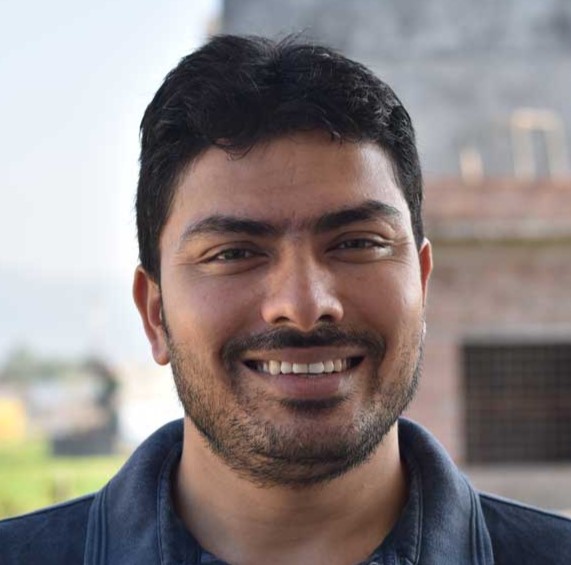Columns
Mainstream media’s role in the digital age
They must actively serve as fact checkers to tackle mis/ disinformation.
Dr Bipin Adhikari
The role of mainstream media is increasingly shared by a myriad of online platforms that are often accessed more frequently due to their easier availability, and more so in recent years as mobile phones and the internet permeate daily lives. One important concern that triggers a collective question is their utility, which cannot be argued from one aspect alone since they have both pros and cons. But what if informal online media continue to pervade human lives so much so that they distort science through mis/disinformation?
The flow of misinformation and disinformation poses a significant threat to human lives, as highlighted in the literature on vaccine uptake. The World Health Organisation has also issued a stark warning that an infodemic can fuel confusion and risk-taking behaviours, deteriorate health, erode trust in health authorities and undermine public health responses. But are we ready to fight off the infodemic, particularly as social media proliferates as an inseparable part of daily life, even in the world’s sluggish economies? Regardless of economies, communities in low- and middle-income countries do have access to the internet, although they may, at the core, struggle with amenities essential for living.
The internet and social media have progressed disproportionately to economic development. The amount of access to information an Afghan man in Kandahar or a Nepali woman in the remotest part of Humla in the far west has through social media is insurmountable compared to a few decades ago when people had to rely on mainstream media. It clearly implies the need to monitor and supervise what information is fed and how people react to it.
My close relative, a 51-year-old man, asked me whether he should really consult a well-known saint who has been floating around on Facebook and YouTube touting the role of what he calls the power of a wild plant seed he has discovered in his remote sanctuary in the Far West of Nepal. Another one of my close relatives, a 67-year-old woman, extolled a particular plant leaf that could cure her long-standing diabetes. She had obviously learned this from Facebook Shorts, which seemed to have captivated her, and she was determined to self-prescribe, only to find herself engulfed in the severity.
These examples are neither representative nor exhaustive but utterly uncomfortable. These unconfirmed, unsubstantiated words of mouth shared through portable devices cost them nothing except for the vested commercial interests behind them; however, they do cost lives for those who subscribe to them.
The online inundation of unsupervised information functions in two main reduced categories among many. First, it serves audiences in a populist fashion. Second, it is found within arm’s reach of individuals—in smartphones, for example. These functionalities are under-prioritised by the mainstream media, mainly because their practice traditionally relies on the facts and incidents that corroborate the evidence. One fundamental element common between these two is how sensationalism functions much in the same way as populism; that is, anything beyond the normalcy of everyday reality in human lives, thrives. An audience is programmed to pay attention to a deviant incident much the same way as when a plane crash or bus accident occupies a headline space in mainstream media. What that means for the general population is that anything deviant or alternative to what has been normalised in a society, is much more captivating than what may otherwise sound mundane.
This particular concept is a vital latch point for both formal and informal media when it comes to drawing audience attention. The critical deviance from formal to informal media centres largely around how far informal media can practice autonomy without the guards of ethics and governance.
In this context, science is now more vulnerable than before the advent of the current online digital world, where unsubstantiated claims are floating in both disorganised and organised patterns under the masquerade of persuasive sensationalism and populism. Social media content, often more convincing than its mainstream counterparts, exacerbates this vulnerability. One such example is the flourishing narratives of pseudoscience, including conspiracy theories, that rightly exploit the gaps that are either yet to be solved by science or are persuasively garnered into alternative theories. These gaps are not only a target for conspiracy theorists but also for political leaders seeking to exploit uncertainty, as was evident during the Covid-19 pandemic.
Mainstream media has a more critical responsibility now than before, as it has to present the counter stance to alternative content and, at the same time, fulfil the ethical responsibilities of offering space for science, trust and harmony for the health and well-being of the population. To tackle the challenges posed by misinformation and disinformation, mainstream media must not only counter false narratives but also become more proactive in its engagement with the public.
This requires a shift from conventional methods of being positioned as a news outlet to transforming itself into a fact checker. The transformation, however, should find a balance so as not to antagonise by ostracising those spreading false information, but rather by reconciling the differences through engagement, dialogue and evidence comprehensively. This demands an additional focus on building trust by prioritising accuracy, objectivity and clear communication of scientific findings. This approach can help restore public confidence in mainstream media as a platform for verifying the content they have been inundated with from online sources.
Additionally, collaborations between journalists, scientists and fact-checking organisations can ensure that content shared with the public is rigorously vetted. This collective effort can safeguard against the rising tide of pseudoscience and conspiracy theories. Public health campaigns, educational programmes and social media outreach led by mainstream media can also play a significant role in understanding and addressing misinformation. Adopting a responsive, situated and dynamic engagement platform around the dangers of unverified claims, including ways to critically evaluate information to mitigate the harms caused by false information, is crucial.
Adhikari is a researcher at Mahidol-Oxford Tropical Medicine Research Unit, Faculty of Tropical Medicine, Mahidol University, Thailand.




 10.12°C Kathmandu
10.12°C Kathmandu















